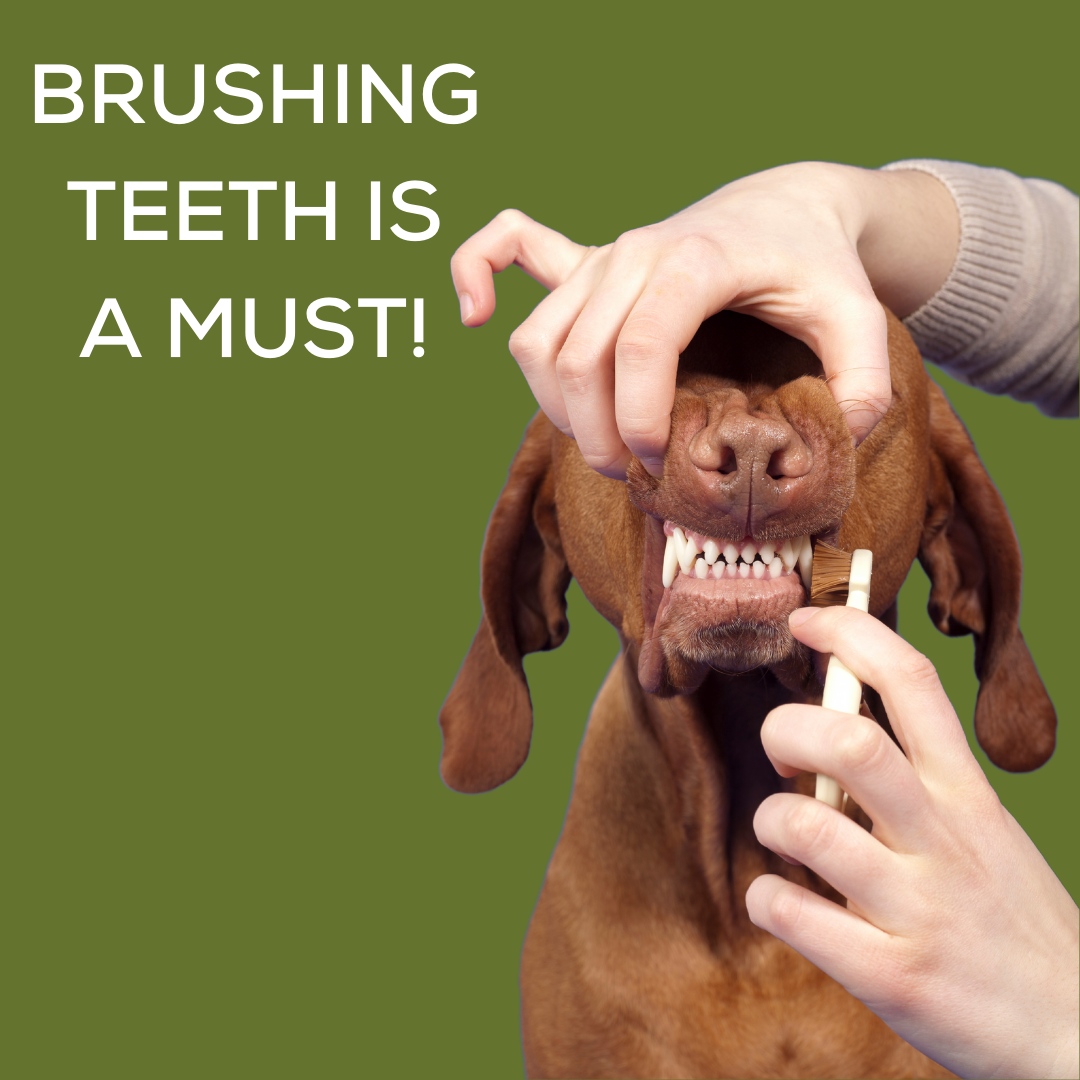Brushing Your Dog's Teeth is a Must!

Most dog owners remember they need to bathe their dog and trim their nails, but often forget about dental care which is very important. Here are some reasons why brushing your dog's teeth is important and helps them age without painful gums. It is estimated that around 2/3 of dogs over the age of three have periodontal disease, an inflammation or infection of the tissues surrounding the teeth. Brushing at least three times a week is the minimum recommendation to help promote healthy teeth and gums. Brushing twice a day is ideal and helps avoid tooth decay, loss, and gum disease.
Here are some reasons why brushing is so important:
- To prevent the build-up of plaque and prevent rotting teeth which are infected. The same biological process that happens with humans happens with dogs too! A biofilm called plaque coats the teeth’s surface and in a few days, the film will calcify and turn rock hard. While the first layer is still manageable and can be removed with brushing, more layers will accumulate over time if not attended too. This will create a nasty, yellow-brown film over your dog’s teeth called plaque. This could lead to further infections, gum pain, tooth loss if left unattended.
- Tartar: A situation slightly worse than Plaque. Tartar doesn’t take long to form and it can cause immediate damage to the dog's teeth and gum line. It starts out as plaque and when combined with the salts in the dog’s saliva, it builds up and hardens, turning into tartar. Tartar is the perfect base for bacterial growth, which can lead to many different dental issues, and even to tooth root decay and tooth loss. Remember to keep checking your dog’s teeth at home, and add in a regular yearly veterinary checkup to keep them in the clear.
- Preventing gingivitis and other gum diseases: Periodontal disease and Gingivitis are common in dogs with poor dental health. While periodontal disease is an inflammation in the gums, Gingivitis is an inflammatory condition arising from Plaque. These two in turn affect the deep supportive structures of the teeth and can lead to them breaking or falling out.
- To keep in check bad breath or orthodontic problems: Bad breath comes from the plaque formation in the teeth. No plaque No bad breath!
- Some dogs may not be comfortable with this activity. Best to start the practice at a young age and slowly get them accustomed to brushing. With older dogs, use introductory training and desensitization methods to help them get used to this.
- Your dog will swallow the toothpaste and no there is no reason to panic! These dog toothpastes are designed to help to get them a product meant for their preference and health. Pet toothpaste is available in a range of flavors like beef or poultry and is edible for dogs.
- If you are unsure of doing this at home, You can talk to your vet about scheduling a professional cleaning.
- Dental disease can become painful for dogs! By ignoring their dental care you might also be causing them to live in pain daily. If they are facing dental issues they might not want to eat, and also experience mood swings.
- In addition to brushing your dog’s teeth daily, it is a good idea to provide daily chewy toys as well as veterinarian approved dental treats. Raw bones can also be given to help prevent tartar buildup as it naturally rubs against the teeth.
- Getting their teeth brushed is a bit unnatural for dogs. To make this a positive experience give them lots of pats, praises and treats!
|
Posted on January 15 2022